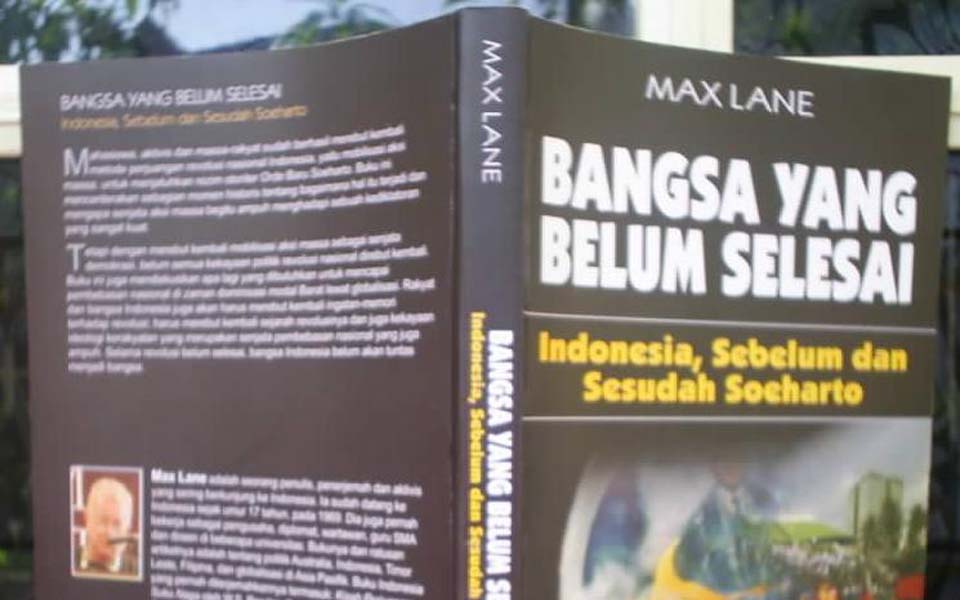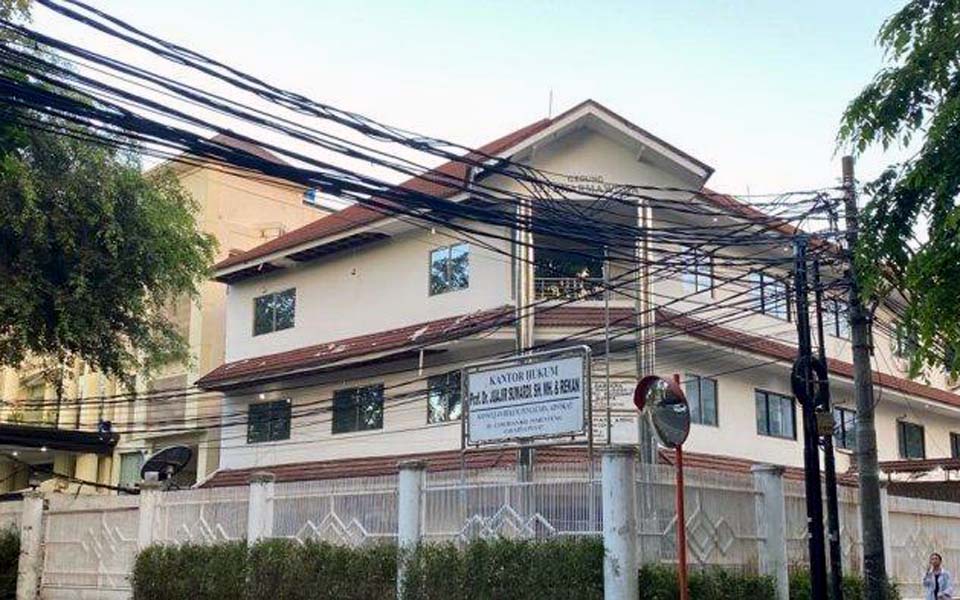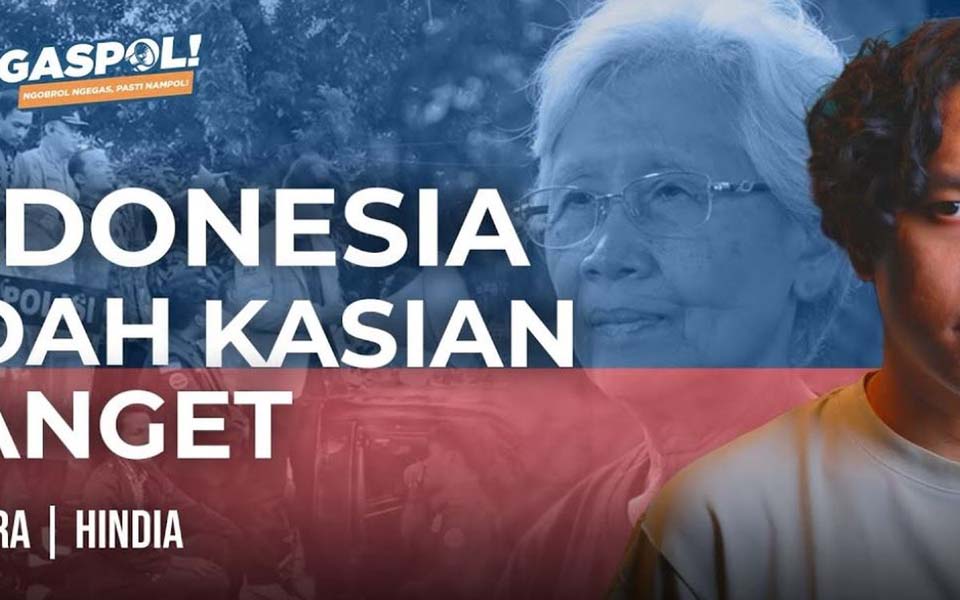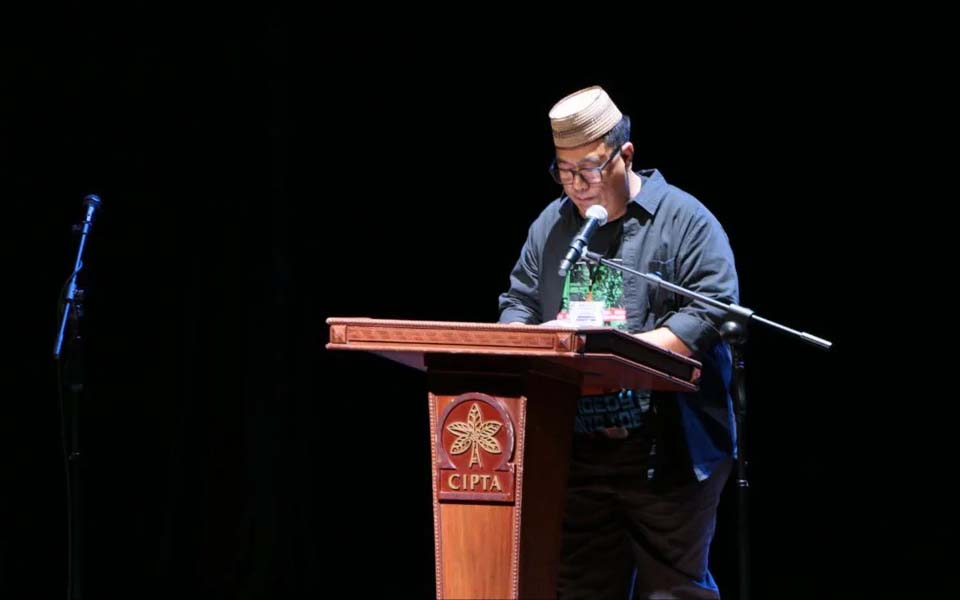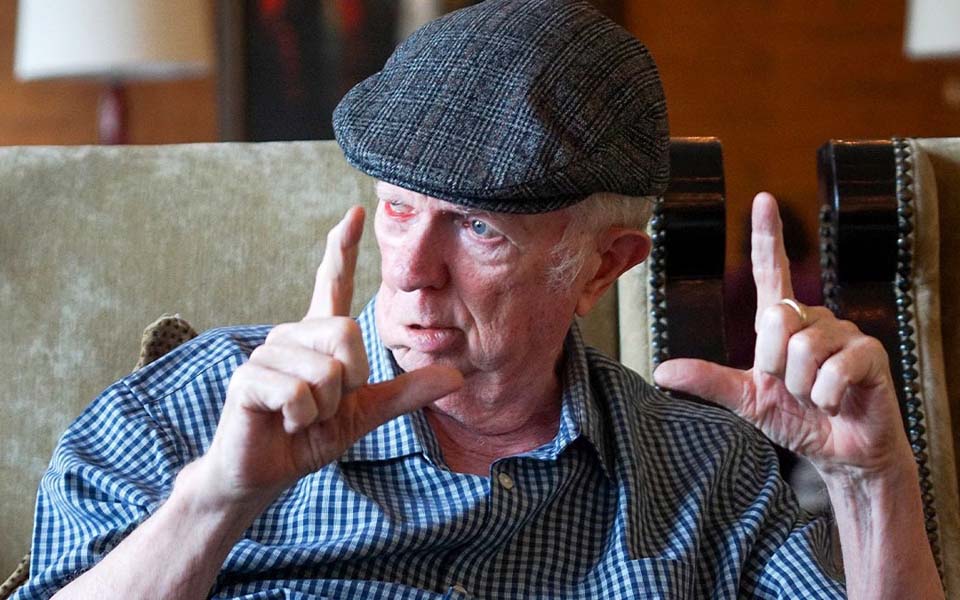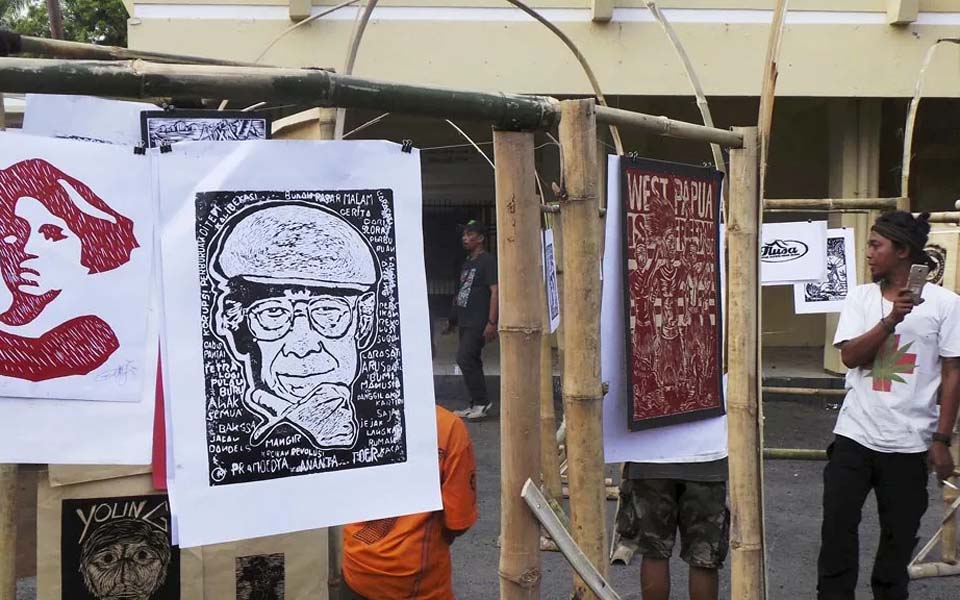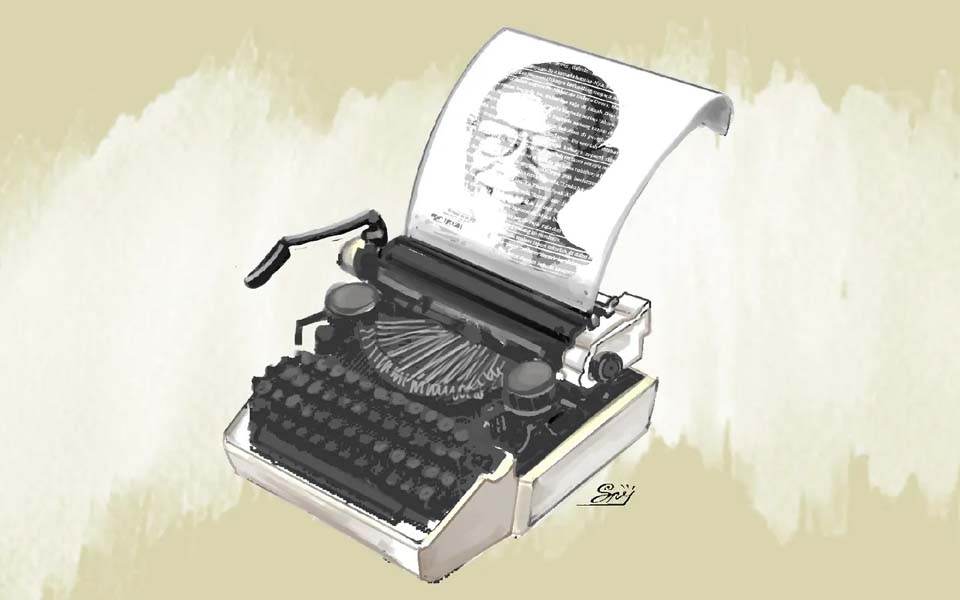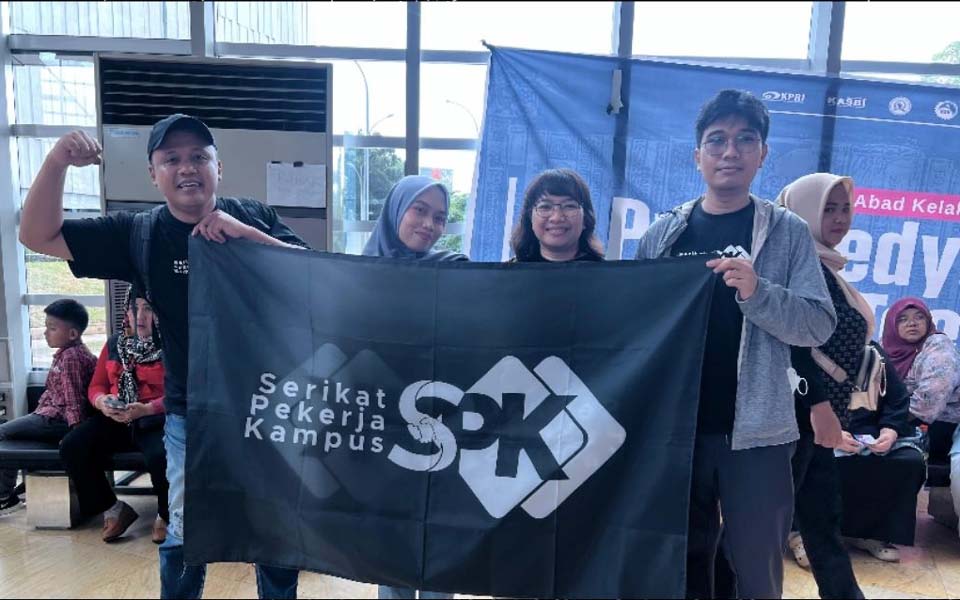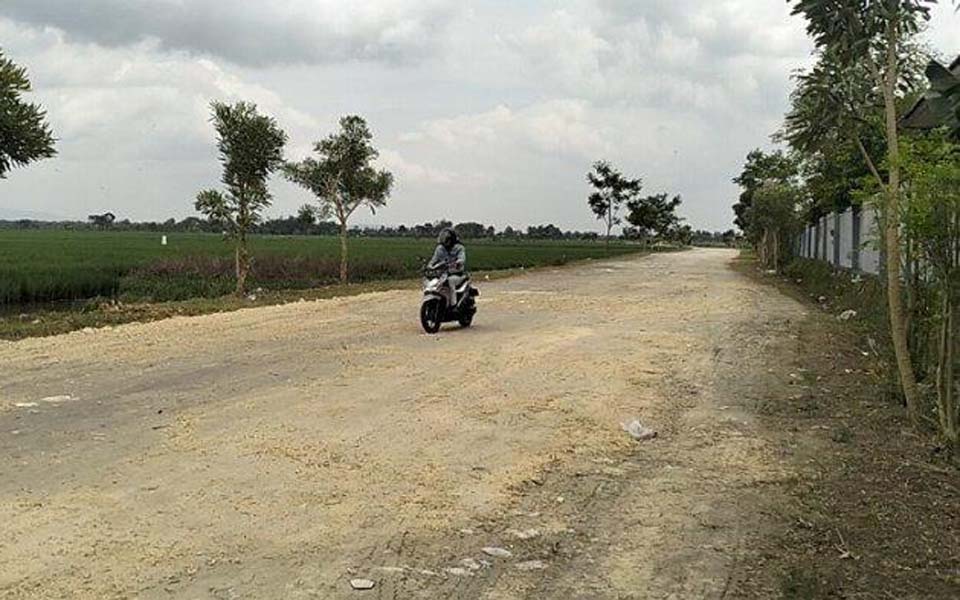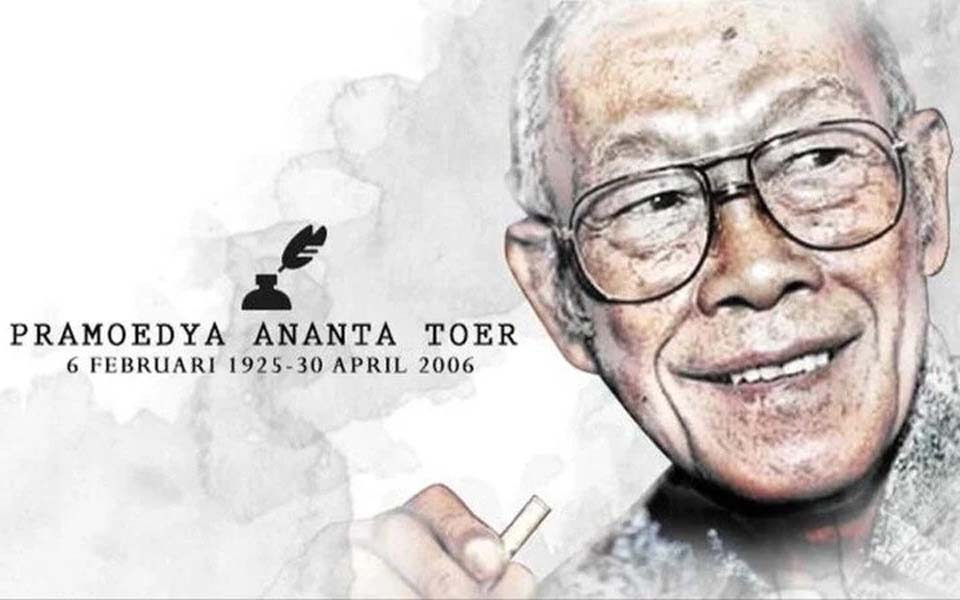“Literary history must be won back. Culture as a priority for the people must be won back. People today have forgotten the literature of Kartini1, also Pramoedya2, who was crucial in unearthing the foundations of [Indonesia] as a nation”, said Max Lane in book dissertation of his latest work An unfinished nation: Indonesia, before and after Suharto, which was held at the Book Discount Festival in the Auditorium Building A at the National Education Department in South Jakarta on Sunday July 1.
The event, which was attended by around 120 people, was organised by the activist talking mailing list (aktivis_bicara@yahoo.com) in cooperation with the Discount Book Festival committee. The activist talking mailing list has organised a number of recent discussions on the theme of political leadership.
Aside from Lane who appeared as a panel speaker, also present was Daniel Dhakidae (Kompas Daily research director), Dita Indah Sari (general chairperson of the People’s Democratic Party, PRD) and Yosef Adi Prasetyo who goes by the nickname Stanley (a former 1980s student activist and member of the National Human Rights Commission). Former PRD political prisoner Wilson moderated the discussion. Hariman Siregar (a 1974 activist) and Rama Pratama (a 1998 student activist) who were to present a criticism of the book was unable to attend.
Appearing as the first panel speaker, Dhakidae said that in his book Lane is consistent in his conclusion that the political reforms that took place in Indonesia were because of mass action. He focused on the student movement in the 1965 period which according to Dhakidae were political in character, and post 1966 the actions that took place were in fact anti-political. This period also saw the strengthening of the role of military as an institution. During the period that followed, in the 1970s the issue of corruption emerged as a moral movement behind figures such as Arief Budiman, which in the end broadened, turning into actions against Japanese capital and militarism.
“Max Lane’s book becomes crucial because it records the development of the ‘nation’ including the process of its destruction. Aside from noting that mass actions are an effective weapon and method, the book also shows us about the revolutionary concepts of the past. This book could become a reference for young people. What is important now is how the people can exert political pressure”, said Dita Sari who arrived late because she had to pay her condolences to Julius Usman (a 1970s activist). Dita also emphasised the need to defend Indonesia’s values and dignity as a nation, which is related to the strength of the globalisation movement.
One of the members of the audience, Roy, commented that Lane’s book could be seen as containing perspectives for the future, both in terms of culture, ideology and populism. If these aspects can be deepened, it could become a basis for the growth of the movements in Indonesia.
Responding to a person who asked about how to overcome the various problems that Indonesia is facing such as poverty, Lane explained that in order to overcome poverty it is not enough just to nationalise the mining and oil and gas industries. That’s not enough, “The people must be able to organise themselves. Literature and history must be studied seriously at school, so that the people know the history of their own nation”, he added. Lane closed by saying that to this day, the various tactics needed to move towards the liberation of the people, that is the instruments that support the movements, a newspaper, vergadering (mass rallies) and an organised resistance that is led nationally, have unfortunately, not been maximised.
Bejo Untung, an activist from the Institute for the Study of the 1965-1966 Massacres (YPKP), an organisation that carries out advocacy for the victims of the 1965 humanitarian tragedy, asked about the problems in resolving the issue of 1965 itself. For years and years various endeavors have been carried out, ranging from lobbying to political actions, but to this day the issue has yet to be clarified. Untung also took the opportunity to seek a commitment from Stanley, who by coincidence has recently been announced as a new member of the National Human Rights Commission, to demonstrate his political commitment over the 1965 humanitarian tragedy. Max again explained that the 1965 issue, that is now decades old, will only be resolved through strength of the masses.
In the final discussion, the moderator did not attempt to draw any conclusions but underlined that Lane’s book is important for us all. The book contains an abundance of material from an author who has been able to record every stage in the resistance against the New Order since it was first established. Petrus H Hariyanto representing the activist talking mailing list closed the event by awarding of a charter to the speakers and moderator.
Notes:
1. Kartini was an Indonesian regent’s daughter during the Dutch colonial period who, through her letters home, outlined her dreams of a better life for women. She died aged 25 a few days after giving birth to her first child. A variety of myths have made the original Kartini a nationalist hero and feminist symbol.
2. The late Pramoedya Ananta Toer is widely regard as Indonesia’s greatest novelist and author of several works of revolutionary historical literature. In 1965 he was arrested during Suharto’s purges and massacres of the Indonesian left and interned without trial until 1979. He died on April 30, 2006.
[Translated by James Balowski.]





